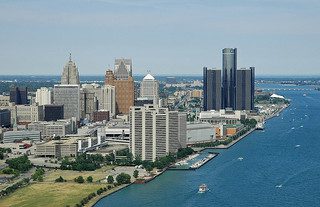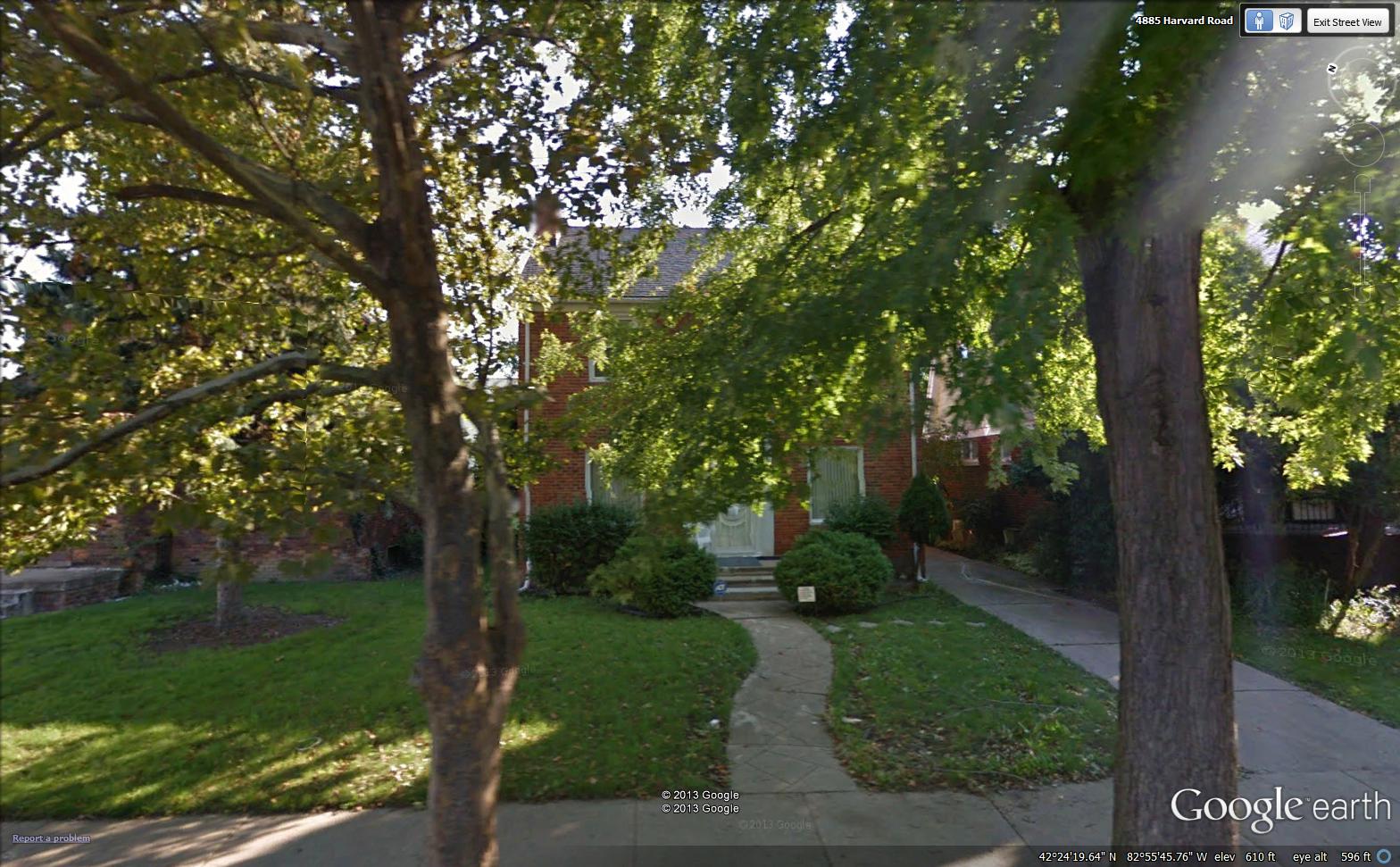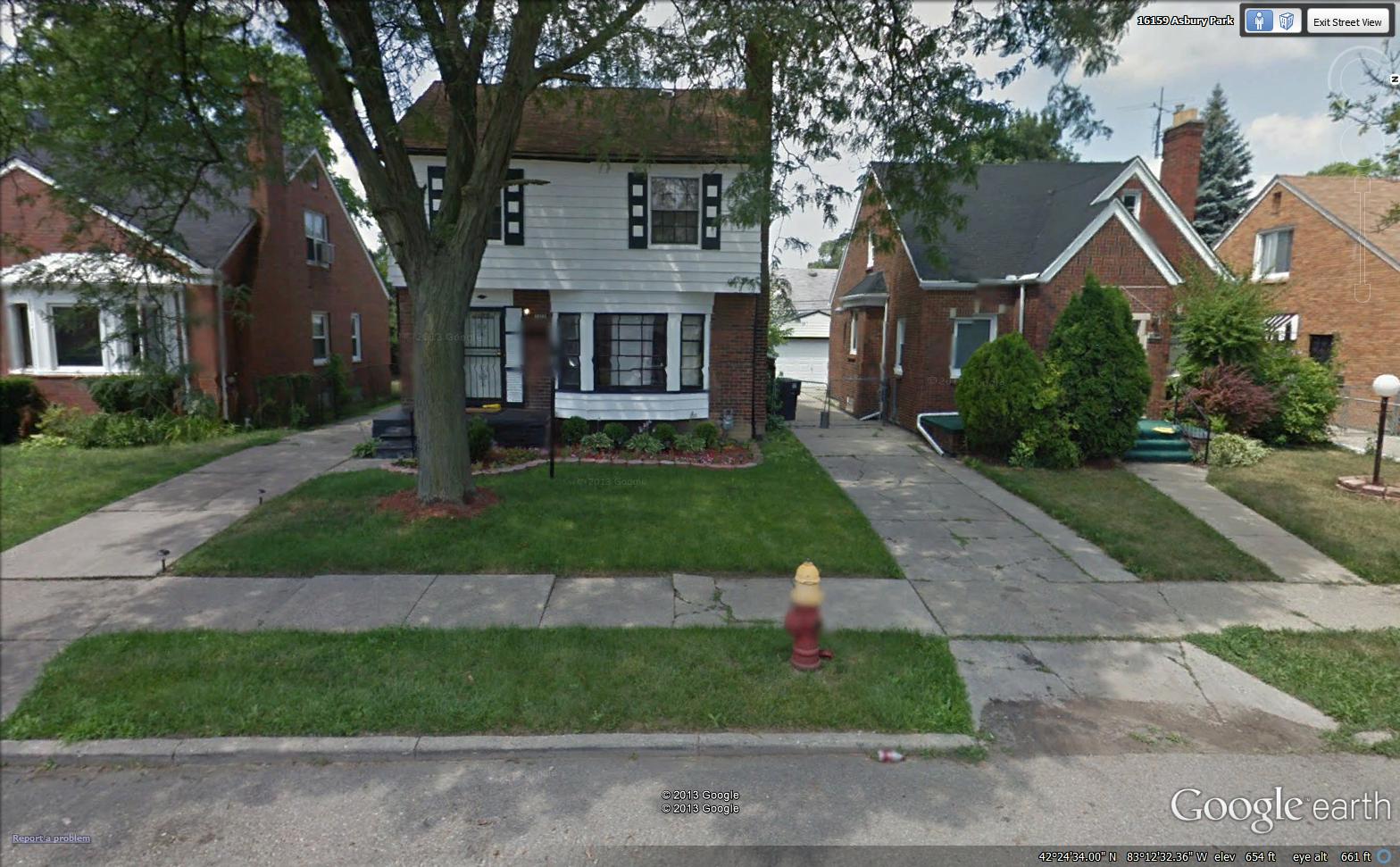
At the same time, there are some unique or at least unusual things about Detroit which bear mention. While most Rooflines readers, I suspect, do not think much about the property tax system as a factor in urban decline, how properties are taxed and what happens if you don’t pay play an important role in a city’s economic trajectory. And Detroit’s system is dysfunctional to an extent unmatched by other American cities.
The first question is what you pay. In most parts of the South and the West, each year you pay about 1 percent or less of a house’s market value. In places like New York and New Jersey, where property taxes are much higher, you may pay as much as 2-1/2 or 3 percent, but rarely much higher. In most cities or counties, tax assessors keep track of property sales and prices, and regularly adjust assessments to make sure they stay fairly close to market value.
In Detroit, it’s different. Property values have collapsed over the past seven or eight years, but taxes have not. Between 2006 and 2012, the median sales price went from $70,000 to $17,000. As a result, taxes, which were high to begin with, have spiraled as a percentage of house value. One house was listed on Realtor.com for $7,500, and its 2012 taxes were $2,547; another, listed for $5,900, had 2012 taxes of $3,398, or more than 50 percent of the listing price. For any rational person, this makes no sense, particularly in a city where streets and parks are falling apart, and where police take hours to respond to crimes. In nearby suburban Royal Oak, you can buy a house for $100,000 and pay less in taxes than on a Detroit house worth $10,000.
4882 Harvard Road. Offered for $68,000, 2012 taxes were $2,796.
16161 Asbury Park. Offered for $6,500, 2012 taxes were $4,373.
What happens? People don’t pay. According to a Detroit News study, nearly half of all the taxable parcels in the city were delinquent at the end of 2011, representing a loss of $246 million to the city. As one homeowner put it, “Why should I send them taxes when they aren’t supplying services? It is sickening. … Every time I see the tax bill come, I think about the times we called and nobody came.” People don’t pay their taxes, and others walk away.
A Downward Spiral
Everywhere in the United States, if you don’t pay your property taxes, you can lose your property through tax foreclosure. There are many different systems, but the one in Michigan is very straightforward. If you don’t pay your taxes for three straight years, Wayne County puts it up for auction. The first auction is for the full amount of taxes, interest and penalties owed; in other words, often more than the house is worth. If a house doesn’t sell at the first auction, the county holds a second auction, usually about a month later, where the minimum bid is $500, no matter what the taxes are. If it doesn’t sell at the second auction, it becomes the property of the county.
In the first auction, investors cherry-pick the best properties, like the one on LaSalle Boulevard. The second auction gets a different crowd, a combination of bottom-fishers and some savvy property owners who gamble that their property won’t sell at the first auction, and come in and get their property back for $500, wiping out an $8,000 to $10,000 tax bill. The bottom-fishers are usually what I call “milkers”; people who pay pennies for the property, put little into it, rent it out basically “as is,” don’t pay taxes, and at the end of three years, walk away, having made a nice return on their investment. Or else, they come back in to get another three year free ride for $500. Since less than a third of the properties sell in the first auction, it’s a pretty good gamble. Finally, the ones left over become the county’s property. Last year, that meant that around 8,000 properties were added to the public land inventory, which already numbered around 63,000 properties. About two out of five had somebody living in them, but since neither the city or the county has any capacity to manage rental properties, that number is likely to drop fairly fast.
It’s pretty clear that the tax foreclosure process is counterproductive, favoring speculators, further destabilizing neighborhoods, and ending up dumping thousands of valueless properties on the public sector. It could be improved: the city and county, along with local CDCs, could identify properties that should be targeted for different purposes, and see that they get into responsible hands. More could be done to help homeowners who’ve gotten into a temporary financial hole, and so forth.
All of that is tinkering around the edges. The real problem goes back to the system itself. As long as taxes are 20 percent, 30 percent or more of the house’s value and services are subpar, a lot of people are simply not going to pay them. And then, unless the county wants to look the other way, which it’s hard to see how they can, they have to have tax foreclosure auctions. And the auctions feed the downward spiral of Detroit’s neighborhoods, and further discourage the remaining owners from paying their taxes. The only solution I can see is for the city government to accept the low market values as reality, and adjust the taxes accordingly, bringing them down to around 2% of real market value, or $150 for a house worth $7,500. At that point, you might see people start paying their property taxes again.
The problem is that Detroit—even with half of its property owners not paying—still collects around $200 million per year from property taxes. In the long run, if people start paying on time and market values move back up, tax revenues will come back. But, in the short run, the city can hardly spare the millions they would lose by making the taxes reasonable and realistic. Yet until they do, they’re stuck in the spiral. Does anybody care?
An interactive web site developed by some local activists with information about the forthcoming Wayne County 2013 tax foreclosure auction can be seen here. And background about the web site and its organizers, and additional information can be found at https://makeloveland.com/








A very enlightening article. Clearly, Detroit’s property tax system is worse than most. Yet, even most typical property tax systems are dysfunctional for American cities.
Public officials almost universally claim that our cities need more jobs and more affordable housing. Yet, when landowners improve property and thereby create housing or jobs, they are punished with higher taxes. And, unlike a sales tax that is paid only once, the property tax on buildings is paid each and every year that an improvement adds value to a property. Thus, over time, even a 1% or 2% property tax has the economic impact of a one-time sales tax of between 10% and 20% on the cost of construction labor and materials.
On the other hand, when owners allow buildings to deteriorate, they are rewarded with lower taxes. Clearly, even when assessments are kept up-to-date, the economic incentives of the traditional property tax are upside-down and perverse.
Fortunately, some jurisdictions are rectifying this situation. They are using “value capture” to transform their property tax by reducing the tax rate on privately-created building values and increasing the tax rate on publicly-created land values. The lower tax rate on buildings makes them cheaper to construct, improve and maintain. More affordable buildings are good for residents and businesses alike.
Surprisingly, the higher tax rate on land values helps keep land more affordable. This is because taxing land does not cause the supply of land to diminish. And, by reducing the profit from land speculation, the tax on land values reduces speculative demand, thereby keeping land prices more affordable.
Several Pennsylvania cities, devastated by the collapse of the steel industry, have implemented this policy with success. Perhaps Detroit and other cities should take a look in this direction.
More information can be found in an article, “Break the Boom and Bust Cycle” in the August 2012 issue of PM Magazine (by ICMA). It can be found at https://webapps.icma.org/pm/9407/public/cover.cfm?author=Rick Rybeck and Walt Rybeck&title=Break the Boom and Bust Cycle&subtitle;=